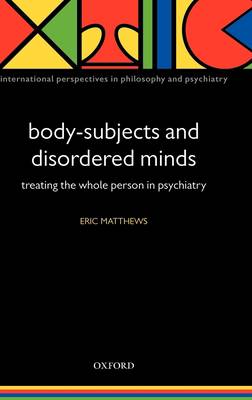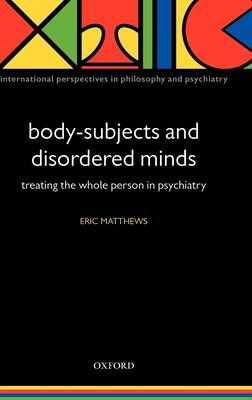
- Retrait gratuit dans votre magasin Club
- 7.000.000 titres dans notre catalogue
- Payer en toute sécurité
- Toujours un magasin près de chez vous
- Retrait gratuit dans votre magasin Club
- 7.000.0000 titres dans notre catalogue
- Payer en toute sécurité
- Toujours un magasin près de chez vous
257,95 €
+ 515 points
Format
Description
How should we deal with mental disorder - as an "illness" like diabetes or bronchitis, as a "problem in living", or what? This book seeks to answer such questions by going to their roots, in philosophical questions about the nature of the human mind, the ways in which it can be understood, and about the nature and aims of scientific medicine. The controversy over the nature of mental disorder and the appropriateness of the "medical model" is not just an abstract theoretical debate: it has a bearing on very practical issues of appropriate treatment, as well as on psychiatric ethics and law. A major contention of this book is that these questions are ultimately philosophical in character: they can be resolved only if we abandon some widespread philosophical assumptions about the "mind" and the "body", and about what it means for medicine to be "scientific". The "phenomenological" approach of the twentieth-century French philosopher, Maurice Merleau-Ponty is used to question these assumptions. His conception of human beings as "body-subjects" is argued to provide a more illuminating way of thinking about mental disorder and the ways in which it can be understood and treated. The conditions we conventionally call "mental disorders" are, it is argued, not a homogeneous group: the standard interpretation of the medical model fits some more readily than others. The core mental disorders, however, are best regarded as disturbed ways of being in the world, which cause unhappiness because of deviation from "human" rather than straightforwardly "biological" norms. That is, they are problems in how we experience the world and especially other people, rather than in physiological functioning - even though the nature of our experience cannot ultimately be separated from the ways in which our bodies function. This analysis is applied within the book both to issues in clinical treatment and to the special ethical and legal questions of psychiatry. Written by a well known philosopher in an accessible and clear style, this book should be of interest to a wide range of readers, from psychiatrists to social workers, lawyers, ethicists, philosophers and anyone with an interest in mental health.
Spécifications
Parties prenantes
- Auteur(s) :
- Editeur:
Contenu
- Nombre de pages :
- 200
- Langue:
- Anglais
- Collection :
Caractéristiques
- EAN:
- 9780198566434
- Date de parution :
- 15-02-07
- Format:
- Livre relié
- Format numérique:
- Genaaid
- Dimensions :
- 156 mm x 234 mm
- Poids :
- 458 g

Les avis
Nous publions uniquement les avis qui respectent les conditions requises. Consultez nos conditions pour les avis.






